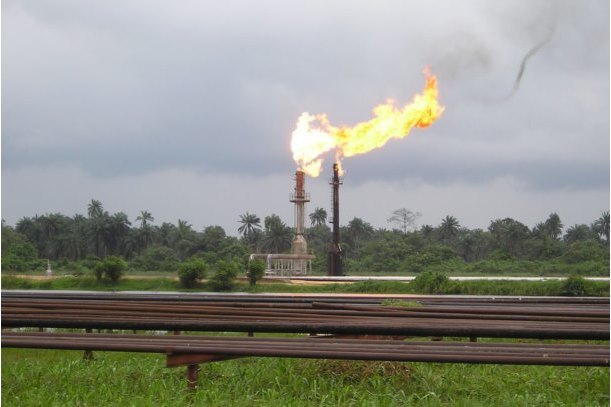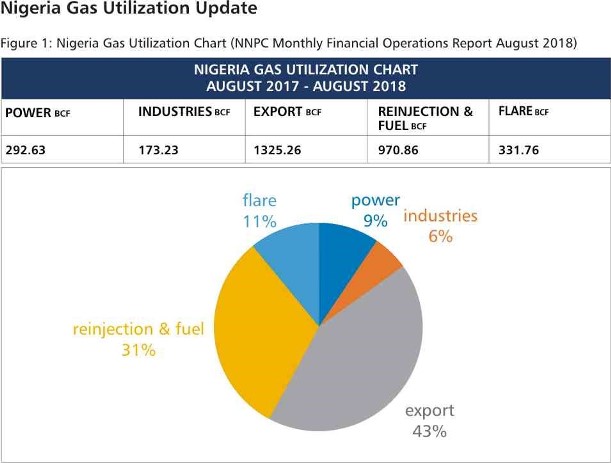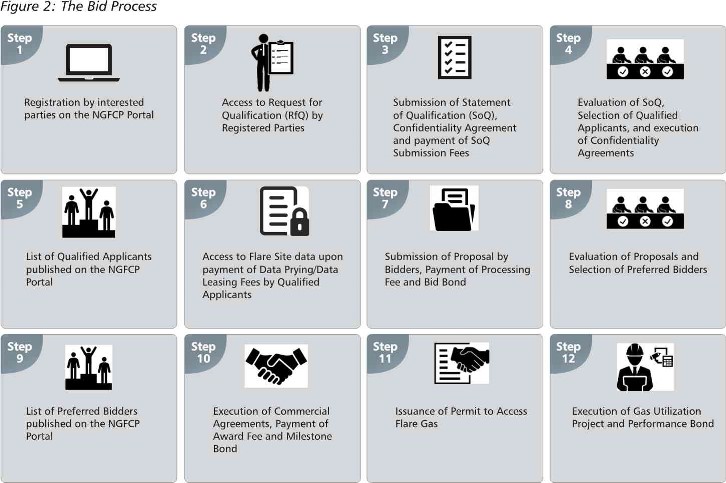Commercializing flared gas in Nigeria – Part 1

Feature Highlight
The implementation of the flare gas commercialization programme can be a good starting point for achieving increased supply and utilization of gas in the domestic market, and a reduction in gas flaring.
Introduction
The Nigerian Gas Flare Commercialization Programme (NGFCP) was launched by President of the Federal Republic of Nigeria, Muhammadu Buhari, in his capacity as the Minister of Petroleum Resources (Minister) on 13th December, 2016. The objective of the NGFCP is to establish a bankable commercial framework for the monetization of flare gas, by providing flare gas buyers with access and title to flare gas for fuel and/or feedstock for gas utilization projects. Subsequently, the Flare Gas (Prevention of Waste and Pollution) Regulations 2018 (the Regulations) was issued by the Minister and published on 9th July, 2018 in the Official Gazette of the Federal Republic of Nigeria. The Regulations provide the legal framework for the implementation of the NGFCP and also sets new operational standards for the Oil and Gas industry to disincentivize gas flaring in Nigeria.
The Federal Government announced the launch of the first bid round for the flare gas commercialization programme on 27th November, 2018 and called on domestic and international interested bidders to indicate their intention to participate in the NGFCP by registering on NGFCP portal and submitting a Statement of Qualification (SOQ) by 28th February, 2019. The launch of the first bid round is the largest market-driven flare gas monetization programme to be undertaken in Nigeria. This article highlights the bid process for participation in the NGFCP and key considerations/success factors for the prospective participants. 
A review of the gas utilization trend in Nigeria between August 2017 – August 2018 indicates that about 11% of total gas production was flared. This means the total gas flared was 13% more than the amount of gas supplied for power generation and almost double the amount of gas supplied to domestic industries. These statistics highlight the huge potential of flare gas, if commercialized. Therefore, the implementation of the flare gas commercialization programme can be a good starting point for achieving increased supply and utilization of gas in the domestic market, and a reduction in gas flaring.
Legal Basis for the Implementation of the NGFCP
Paragraph 35 (b) (i) of the First Schedule to the Petroleum Act vests the Federal Government of Nigeria (FGN) with the right to offtake natural gas produced with crude oil by the licensee or lessee free of cost at flare, or at an agreed cost and without payment of royalty. The Regulations, which specifically applies to flare gas, recognizes this exercisable right of the Federal Government and further provides that flare gas shall be taken free of cost at flare from all petroleum leases and licences, including Marginal Fields. (Paragraph 2 of the Regulations). Flare gas is defined under the Regulations as associated gas produced by an Upstream Producer, and is finally diverted toward a flare site by the producer with the intention at the point of diversion that the associated gas will be flared. (Paragraph 24 of the Regulations)
The FGN, in exercising its right to take flare gas, will grant successful bidders a Permit to Access Flare Gas (the Permit) which authorizes the Permit Holder to take flare gas at any flare site on behalf of the FGN. The FGN will also transfer title to flare gas through a Gas Sales Agreement between the Permit Holder and the FGN.
The Guidelines
Further to the Regulations and the Petroleum Act, including other salient provisions of key industry legislations and regulations, the Department of Petroleum Resources (DPR), on 27th December, 2018, issued Guidelines for the implementation of the flare gas commercialization framework. (Paragraph 35 (b) of the First Schedule to the Petroleum Act 1969 (as amended); Paragraph 44 of the Petroleum (Drilling and Production) Regulations 1969; Paragraph 47 of the Petroleum Refining Regulations 1974; Paragraph 1 and 2 of the Associated Gas Re-injection Act 1979). The Guidelines strengthen the regulatory framework for the implementation of the NGFCP and expounds the provisions of the Regulation. The following are the issued Guidelines:
i. Guidelines for Grant of Permit to Access Flare Gas
This outlines the procedure for the competitive bidding process to be conducted by the FGN, upon which a Permit to Access Flare Gas will be issued to successful bidders.
ii. Guidelines for Flare Gas Measurement, Data Management and Reporting Obligations
This sets out the criteria, general requirements, data management and reporting obligations of Upstream Producers and Permit Holders, to ensure compliance with the provisions of the Regulations on flare gas measurement, data management and reporting obligations.
iii. Guidelines for Flare Payments
This stipulates the accounting procedure for determining flare payments to be made by Upstream Producers for flaring and/or venting of natural gas, and penalties for non-compliance and late payments.
iv. Guidelines for Producer’s Associated Gas Utilization Projects
This provides the framework for utilization of flare gas for consumption purposes or commercialization by Upstream Producers.
The Bid Process
The FGN is to offer flare gas for sale through a transparent and competitive two-stage procurement bidding process. (Section 6 of the Guidelines for Grant of Permit to Access Flare Gas; Paragraph 3 of the Regulations). The structure of the bid process provides interested bidders with the flexibility of choosing which flare site(s) to bid for; determine the flare gas price payable to the FGN subject to the minimum price of US$0.25/Mscf, (Schedule A, 2.5 (d) of the Guidelines for Grant of Permit to Access Flare Gas); the technology to be deployed; and their targeted end-use market or gas product. The specific flare sites open for bid will be referenced in the Request for Qualification (RfQ) package, which can be accessed upon registration on the NGFCP Portal. (NGFCP Frequently Asked Questions, August 2018). The schematic below highlights the steps and sequence of the bid process for granting the Permit (Schedule A of the Guidelines for Grant of Permit to Access Flare Gas):
Key Points on the Bid Process
The following key points should be noted by interested participants in the NGFCP:
i. An interested party is not required to be a Nigerian entity to partake in the bid process. However, following a successful bid, foreign preferred bidders will be required to register a Nigerian company to be granted the Permit and to enter into the necessary Commercial Agreements. (Schedule A, 2.8 (7) of the Guidelines for Grant of Permit to Access Flare Gas)
ii. A Qualified Applicant or a Preferred bidder may be granted access to the flare site by the DPR, to make an assessment of the flare site and related facilities of the Upstream Producer. This will be preceded by a prior notice to the Upstream Producer and provided that such access shall be in conformity with the health, safety and environmental protocols and access control procedures of the Upstream Producer. (Paragraph 6 (5) of the Regulations and Schedule A, 2.8 (8) and (9) of the Guidelines for Grant of Permit to Access Flare Gas)
iii. An interested bidder may submit a Single Proposal (for a flare site or set of flare sites) or Multiple Proposals (for different flare sites or different sets of flare sites. (Schedule A, 2.5 (b) of the Guidelines for Grant of Permit to Access Flare Gas)
iv. The proposals shall be evaluated based on pre-established criteria in the RfQ, to ensure transparency in the evaluation process.
v. An entity or individual barred by the Economic and Financial Crimes Commission (EFCC), Independent Corrupt Practices and Other Related Offences Commission (ICPC), World Bank Debarred list and US Treasury Office of Foreign Assets Control, shall be ineligible to participate in the bid process. (Schedule A, 2.2 (c) of the Guidelines for Grant of Permit to Access Flare Gas)
Commercial Agreements and Bonds in the NGFCP
The following bonds are applicable in the course of obtaining a Permit:
The Guidelines for Grant of Permits provides that upon selection, a Preferred Bidder will be required to execute the following agreements as a condition precedent to the grant of a Permit by the Minister, within sixty (60) days from the date of award of preferred bidder status: (Schedule A, 2.8 and Schedule C of the Guidelines for Grant of Permit to Access Flare Gas)
i. Milestone Development Agreement with the FGN, by which the Preferred Bidder commits to the developments of the flare gas utilization project according to agreed milestones.
ii. Gas Sales Agreement with the FGN to purchase flare gas.
iii. Connection Agreement with the Upstream Producer to provide connection to the facilities of the Upstream Producer (where applicable).
iv. Deliver or Pay Agreement with Upstream Producer by which the Upstream Producer guarantees to supply an agreed quantity of flare gas to the Preferred Bidder (where applicable).
Key Considerations for Prospective Participants
Factors such as technical expertise, project development experience, commercial capacity, local content, the risk profile, as well as the profitability of the project are important factors to note when structuring a Proposal. For successful implementation of gas commercialization projects under the NGFCP and to enhance bankability, the following critical success factors should be considered by prospective bidders and project developers:
i. Contractual Structure of Project Agreements
Prospective participants would be required to enter into commercial agreements covering the overall scope of an approved gas utilization project. It is important for these agreements to be structured to ensure that all risks are sufficiently mitigated and there are no gaps in obligations. It is also important to ensure proper interplay between the commercial agreements for development of the project, its financing and offtake of end-products, as this will have an impact on the bankability of the project.
ii. Target Market and Offtake
Another critical factor for bankability of any project is offtake. It is, therefore, important for prospective participants to start considering the target market for the proposed end products of their project, modalities for reaching or serving the target market and potential offtakers. Also, procuring guaranteed offtake should be given priority as this will significantly enhance commercial viability of the project and its ability to attract external financing.
iii. Technical and Financial Capability
Requisite technical capability is central to the success of any project, and even more important when it relates to gas utilization projects, which demand a high level of specific technical and managerial capabilities. Therefore, prospective participants who lack the requisite expertise should partner with technical experts well versed in the gas utilization projects being considered. Prospective participants should also partner with the right financial partners with proven capability to provide or raise funding for their proposed gas utilization project. To ensure project partners have requisite capabilities, adequate due diligence should be conducted before entering into any binding agreements.
iv. Location of the Project Site
At the bidding stage, prospective participants will have the option of choosing which flare gas locations to bid for. Given that the Federal Government has not provided any undertaking to provide any pipelines or additional infrastructure, successful bidders (i.e. Permit Holders) would be required to collect their allocated flare gas volumes at the designated flare site. It is, therefore, of utmost importance for prospective participants to consider, amongst other issues, the community issues, accessibility of the field for evacuation of end-products, level of associated infrastructure to be developed for implementation of the proposed project.
v. Nigerian Content Development
Prospective participants should demonstrate compliance with Nigerian content requirements in their proposals, and may be required to submit a Nigerian Content Plan in compliance with the Nigerian Oil and Gas Industry Content Development (NOGICD) Act 2010. Therefore, the key requirements of the NOGICD Act should be considered in developing a Nigerian Content Plan and in preparing bids.
Conclusion
The flare gas commercialization framework will bring in a new era for the Gas Sector and is a step in the right direction towards moving the Nigerian economy from a crude-oil based economy to a more balanced gas-based industrialized economy. The implementation will also create a new revenue stream for participants in the gas sector and further disincentivize gas flaring. With no flare-out date in sight, the NGFCP and the Regulations are notable developments by the Federal Government toward a zero-gas flaring future for Nigeria and hopefully a more sustainable environment for the communities where the flare sites are located.
Detail Commercial Solicitors is distinct as Nigeria's first commercial solicitor firm to specialize exclusively in non-courtroom practice. Based in Lagos, Nigeria’s business capital, DETAIL is totally committed to its clients’ business objectives and reputed for dealing with the minutiae. Email: info@detailsolicitors.com
Other Features
-
Exploring the different types of online loans: Which one fits your ...
A quick loan is designed for fast approval and minimal paperwork.
-
Implications of SEC’s revised minimum capital requirements for ...
Capital Market Operators should ensure that they implement robust controls to ensure that any funds introduced in the ...
-
Building health systems for Africa’s vaccine sovereignty
The imperatives of reducing risk, strengthening markets, securing health futures
-
Analysis of CBN’s new regulations on cash management and dual ...
By revising cash policies and mandating dual connectivity for payment terminals, the Central Bank of Nigeria seeks to ...
-
Africa’s crypto investment market: where growth may emerge next
Africa’s crypto investment market: where the next growth coould explode.
-
Lessons from the 2025 Goalkeepers Report: What kind of innovation ...
The 2025 report issues a clear call to action for policymakers and engaged citizens.
-
Profit: The most powerful engine for scaling impact, dignity, and ...
The most prosperous countries in the world are not those with the most aid programmes. They are those with the most ...
-
Expect turbulent asset markets in 2026
The negative impact of Trump’s tariff and immigration policies will be felt more acutely in 2026.
-
The scars of partition
Contrary to his rosy assurances, partitions often result in tragedy, as borders drawn by cartographers rarely align ...
Most Popular News
- Artificial intelligence can help to reduce youth unemployment in Africa – ...
- Profile and reflection on Africa's women leadership ahead of IWD 2026
- NDIC pledges support towards financial system stability
- Grene Capital spins out of Actis as independent real asset fund manager
- Afreximbank ends its credit rating relationship with Fitch
- Cairo events focus on Africa’s asset integrity and cybersecurity















